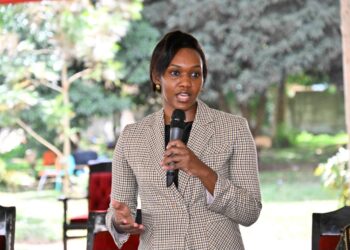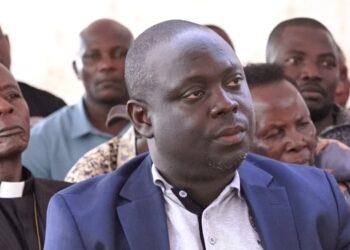Solid everyone generates waste, right. But not everyone cleans their garbage, right. That is why Uganda is one of the most littered countries in the world.
The good news is, garbage is not all that garbage as it has opportunities in it to solve some of Uganda’s most pressing issues including unemployment, plastic littering, energy, fertilizers among others.
The round table discussion was part of a research project on solid waste management being conducted in four major towns by a group of young researchers who are part of our www.youth4policy.org initiative, a think-tank for youth leaders. The towns included Kampala, Mukono, Jinja and Fort Portal.
“We hope this research is a great opportunity to reflect, from a policy perspective about the work you are doing to improve not only the environmental management, protection, conservation practices but also the public health of Ugandans,” said Donnas Ojok, Programme Officer at Konrad-Adenauer-Stiftung, the sponsors of the workshop and research.

While presenting findings, Mr Jonan Kandwanaho, said they discovered that government was running away from its responsibility of managing solid waste. He noted that of all the four towns they visited, Fort Portal had the best mechanism of managing waste. He recommended that Ugandan urban centres need to benchmark their solid waste management mechanisms on Fort Portal also said to be the cleanest of Ugandan towns.
Kandwanaho emphasized that poor handling of waste at source increased disposal costs, a practice Fort Portal is implementing. The town encourages residents to sort their waste and uses three truck at source which has helped the situation.

The Youth4Policy leader said Ugandans still had a problem of perceptions and that was the reason urban dwellers and their managers were still using first century methods to manage waste in their neighbourhoods.
“Managing solid waste starts with me, you,” Kandwanaho added.
Prof James Okot Okumu from Makerere University has done a number of studies and academic papers on solid waste management, and he was the key note speaker at the round table discussion.
He warned that plastics getting into the food chain had hazardous implications on health.
He said there are many ways solid waste can be turned into jobs and money especially for the thousands of unemployed young people. Prof Okumu mentioned animal feeds, handcrafts, energy, briquettes among the things that can employ people meaningfully.

The academic said there need to make solid waste attractive, which will reduce litter on the streets and neighborhoods significantly.
“Waste is money,” he said, adding that giving skills to waste managers was important since, “You need to know how to do it.”
He advised people who want to deal in waste management as a business to get organized, form groups or associations who “turn waste into goods”.
Okumu underscored the fact that most of the things treated as waste were actually textiles, scrap metals, fertilizers, etc.
Kandwanaho says there is need for coordinated troop movements of people involved in waste management. He said in their research they realized Mukono lacked coordination while Jinja’s waste management was a catastrophe.
Mr Obed Lutakome, the solid waste engineer in Kampala Capital City Authority who spent six years as a supervisor of Kiteezi landfill warned that this site was not tenable.
Lutakome gave insights into the problem of solid waste management saying the budget needed to keep Kampala clean was enormous.

He said 35 acres Kiteezi landfill which takes Kampala’s waste had less than six months to fill up, and KCCA had purchased 136 acres in Dundu, Mukono Municipality, to relocate garbage there. In Dundu, the engineer said, they were building an integrated waste plant that would help in segregation waste and maximum put it to good use.
He also advised for creation of incentives for people who segregate waste at source points, say, pay them for kilograms sorted.
Do you have a story in your community or an opinion to share with us: Email us at editorial@watchdoguganda.com











